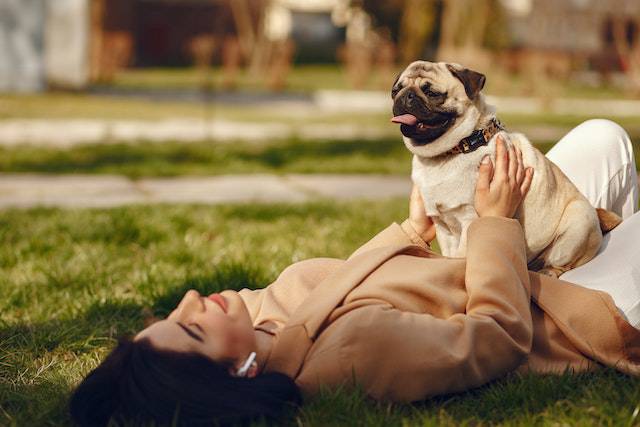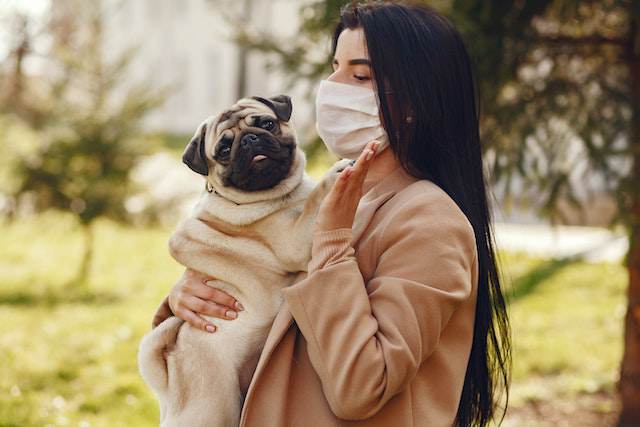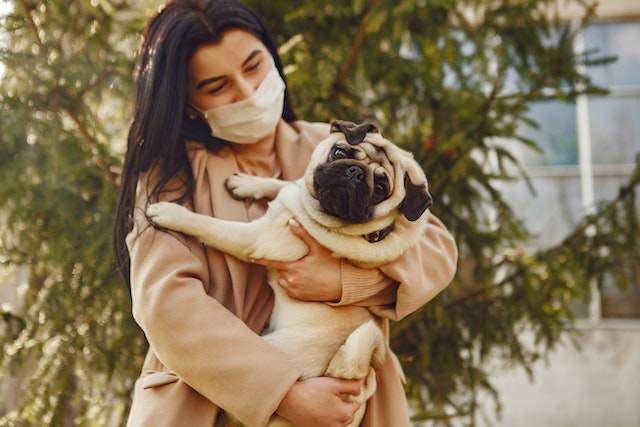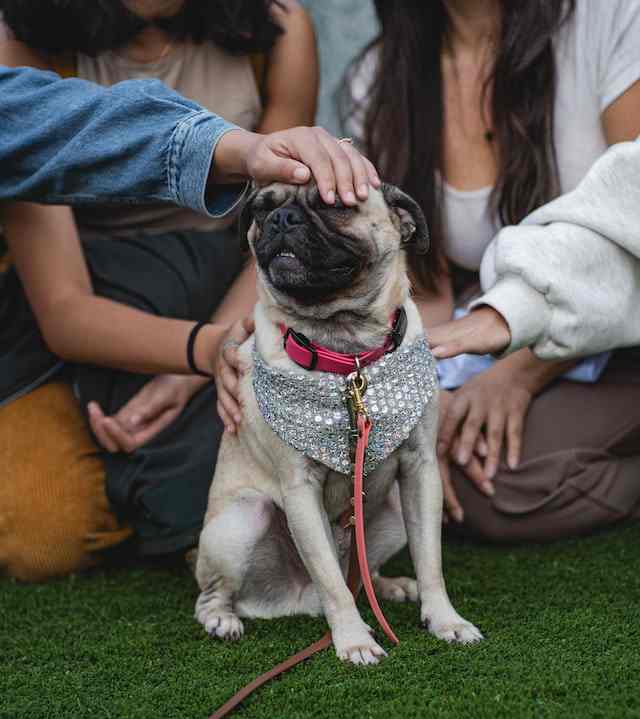Understanding Pug Temperament Traits

Let’s discuss pug temperaments…
Are you thinking of bringing home a new furry friend and considering adding a pug to your family? Pugs are adorable with their smushy faces and curly tails, but before you make your decision, it’s essential to understand their temperament.
In this blog post, we’ll dive into the world of pug temperaments, exploring their characteristics and what makes them unique. So buckle up, grab a cup of coffee, and let’s get started!
Factors Influencing Pug Temperament
Pug temperament can be influenced by various factors, including genetics, socialization, training, and upbringing.
Genetics: Pug temperaments can be inherited from their parents. For example, if their parents are overly aggressive, they may also exhibit aggressive tendencies.
Socialization: Socialization plays an important role in shaping a Pug’s temperament. Proper socialization during their critical development period can lead to the dog being friendly and outgoing. On the other hand, a lack of socialization can cause fear and aggression in Pugs.
Training and upbringing: The way a Pug is raised and trained can also influence its temperament. Positive reinforcement training can help to create a well-behaved dog, while harsh training methods can lead to anxiety and aggression. A consistent training routine can ensure your Pug is well-behaved.
Learn more about dog training mistakes to avoid.
Pug Temperament Traits

The following are some of the most common temperaments pugs are known for:
1. Affectionate and Loving
Pugs are well-known for their steadfast loyalty and affectionate nature. They form strong bonds with humans and thrive on human interaction.
Your pug will be right by your side, showering you with love and adoration whether you’re sitting on the couch or going for a walk.
Their warm and cuddly personalities make them ideal lap dogs, always ready to provide comfort and companionship.
2. Playful and Energetic
Pugs have an incredible amount of energy and a playful spirit despite their small size. They have an uncanny ability to turn even the most mundane activities into exciting adventures.
Pugs are always up for a good time, whether it’s chasing a ball, playing with their favorite toys, or participating in interactive games.
Their enthusiasm for life is contagious, and their amusing antics will keep you entertained for hours.
3. Sociable and Friendly
Pugs are social creatures who thrive in the company of others. They have a natural affinity for people, children, and even other animals.
Their friendly and outgoing personalities make them excellent family pets and ideal companions for households with multiple pets.
Pugs are always eager to meet new people, and their sociability ensures that they will fit right in at any social gathering.
4. Gentle and Patient
Pugs are known for their gentle and patient nature. They are extremely tolerant, making them ideal for families with small children or the elderly.
Pugs have an intuitive understanding of when to be calm and gentle, making them excellent therapy dogs.
Their ability to provide comfort and support is unparalleled, bringing a sense of calm to those around them.
5. Intelligent and Quick Learners
Pugs are intelligent dogs, despite their adorable wrinkled faces! They have a sharp intellect and are quick to pick up new concepts and commands.
Pugs can excel in obedience and agility with proper training and positive reinforcement.
Their intelligence, when combined with their desire to please their owners, makes them highly trainable and adaptable to a variety of situations.
6. Curious and Adventurous
Pugs have an inquisitive and adventurous nature. They are constantly eager to explore their surroundings and learn new things.
While their curiosity can occasionally lead them astray, their playful and mischievous antics only add to their allure.
Pugs will keep you on your toes, instilling in you a sense of wonder and curiosity about the world.
7. Easygoing and Low-Maintenance
The laid-back and easygoing nature of pugs is one of their most appealing characteristics.
They adapt well to a variety of living situations and are generally low-maintenance dogs.
Pugs are happy with moderate exercise and enjoy spending time with their owners.
Because of their adaptability, they are suitable for both apartments and larger homes, ensuring that they can thrive in any living situation.
8. Devoted and Protective
Pugs are fiercely loyal to their owners and will go to any length to protect them.
Pugs have a big heart and a strong sense of loyalty despite their small stature. They serve as excellent watchdogs, alerting you to any potential danger.
Pugs have an innate ability to sense their owners’ emotions and provide comfort when necessary, making them not only loyal companions but also dependable sources of emotional support.
9. Comical and Entertaining
Pugs are natural comedians, always ready to make you laugh. They excel at making people laugh with their expressive eyes and playful demeanor.
Their ridiculous antics and amusing snorts and snuffles will keep you entertained and brighten even the darkest of days.
Pugs have an uncanny ability to bring joy and laughter into any situation, making them the ideal stress and boredom reliever.
Challenging Pug Temperament Traits

The following are some of the most common challenging pug temperament traits to keep in mind:
1. Stubbornness
Pugs are known to be stubborn dogs, that can be challenging to train. They have a strong will and can be difficult to sway.
However, with proper training, consistency, and positive reinforcement, a Pug can learn to follow commands.
2. Independence
Pugs are also independent dogs that prefer to do things on their own terms.
They can be aloof and do not always enjoy being petted or held. This can make them challenging pets for people looking for highly affectionate dogs.
3. Prone to separation anxiety
Pugs tend to bond very closely with their owners and can suffer from separation anxiety if they are left alone for extended periods.
This can result in problematic behaviors, such as excessive barking, destructive chewing, or even self-harm.
4. Attention-Seeking Behavior
Pugs can demand a lot of attention from their owners. They may bark or whine if they feel ignored or left out.
This can make them challenging pets for people who are not willing or able to give them the attention they need.
5. Mischievous
Pugs are inherently mischievous dogs that enjoy playing and exploring. They are known to get into mischief such as chewing on furniture or digging holes in the yard.
This can make them challenging pets for people who are not willing or able to provide them with plenty of exercise and stimulation.
6. Sensitivity
Pugs are known to be sensitive dogs that can be easily overwhelmed by loud noises or sudden movements.
They can also be sensitive to weather changes and may experience breathing difficulties in extreme heat or cold.
This can make them challenging pets for people who live in climates that are not suitable for their needs.
Tips for Nurturing a Well-Balanced Pug

Pugs are an adorable breed of dogs known for their charming and quirky personalities. However, just like any other dog, they require proper care and attention to lead a healthy and happy life.
Here are some tips to nurture a well-balanced pug:
1. Train Your Pug Early
Training is essential, mainly if you have a new pug puppy. Start training early to establish good behaviors and practices. Simple commands like sit, stay, come, and heel are essential instructions to master early.
2. Prioritize Regular Exercise
Regular exercise is important for maintaining the physical and mental health of your pug. A daily walk or playtime will help your pug stay active, and alert, and keep their muscles toned.
3. Provide a Balanced Diet
A well-balanced diet is essential for the optimal health of your pug. A healthy diet should include a good mix of proteins, carbohydrates, vitamins, and minerals. Ensuring that your pug’s diet is balanced and tailored to their specific needs will help to keep them healthy and happy.
4. Limit Treats
While rewards and treats are important for training your pug, ensure that you limit their intake. Too many treats can lead to weight gain, which can cause various health issues. Instead, opt for healthy and low-calorie treats.
5. Regular Veterinary Checkups
Regular visits to your veterinarian are important to detect and prevent potential health issues early on. Your vet can guide you on the best practices for your pug, including a vaccination schedule, diet, and exercise.
6. Maintain Good Oral Hygiene
Dental hygiene is crucial for your pug’s overall health. Brushing their teeth regularly using dog toothpaste prevents the buildup of tartar and plaque and reduces the chances of dental issues such as gum disease.
7. Socialize Your Pug
Socialization is important for your pug’s mental and emotional health. Expose them to different environments, people, and pets early on to help them become well-adjusted and comfortable in various scenarios.
8. Keep Them Cool
Pugs have a short snout that makes them susceptible to heatstroke. Ensure that they have access to plenty of water and a cool environment during hot weather.
9. Maintain Their Skin and Coat
Pugs have a short and smooth coat that requires minimal grooming. However, regular brushing and nail clipping are important for their skin and coat health. Additionally, monitor their skin for rashes and other issues.
10. Provide Mental Stimulation
Pugs are intelligent and curious dogs that require mental stimulation to stay happy and engaged. Engage them in interactive games, puzzles, and toys to provide them with mental stimulation.
Related Questions
Do Pugs make good pets for families with children?
Yes, Pugs are generally very good with children and make great family pets. They are affectionate, playful, and love attention, making them the perfect companion for kids.
Are Pugs easy to train?
Generally, Pugs can be a bit stubborn and slow to train, however, with patience and consistent training sessions, they can be trained to obey simple commands. Positive reinforcement techniques are the best way to train them.
Do Pugs bark a lot?
Pugs are not known to be excessive barkers, but they can be quite vocal if they feel threatened or want attention. Proper training and socialization can help minimize any excessive barking.
Are Pugs good apartment dogs?
Definitely! Pugs don’t require a huge amount of space to move around and are happy to lounge on the couch. They are also relatively quiet, making them a great choice for apartment living.
Are Pugs good with other pets?
Yes, with proper socialization, Pugs can get along with other pets in the household. However, it’s important to supervise their interactions, especially with larger dogs, as they can easily get injured due to their small size.
How energetic are Pugs?
Pugs are known for being playful and energetic, but they also enjoy relaxing and sleeping for long periods of time. Regular exercise and playtime can help keep them healthy and happy.
Conclusion
In conclusion, pug temperaments are as varied as their adorable features. These little pups can range from spunky and playful to relaxed and docile.
Understanding your pug’s personality and providing them with the appropriate care and attention will go a long way in ensuring they lead happy and healthy lives.
Remember, whether you’re a seasoned pug owner or considering bringing one into your home, these little companions will no doubt bring plenty of joy and love into your life.
